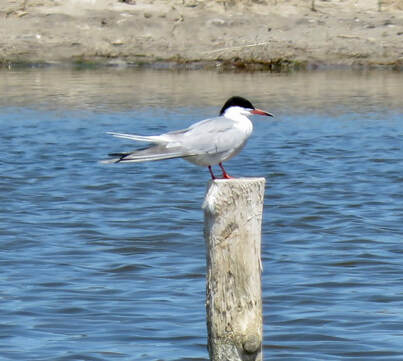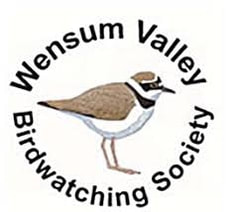
The Common Tern is of conservation concern (BoCC5 amber listed) because of breeding population and breeding range declines of 30-40%. A major cause of their decline is the lack of suitable breeding sites. They require open ground free of vegetation and have traditionally nested on coastal shingle or on low lying inland islands. They are increasingly dependent on the latter as a result of coastal development and human disturbance.
Fortunately, Common Terns are happy to nest on floating rafts provided with a layer of shingle. These 'artificial islands' have, in fact, two significant advantages.
Firstly, they adjust to water level and in contrast to island sites the nests are not lost to flooding in the event of heavy rain in the breeding season. Extreme weather events are becoming common and climate change models predict they will increase in frequency and severity.
Secondly, rafts can be provided with side panels that prevent access by predators such as mink and otter. Side panels also provide newly hatched birds with protection from strong winds and waves in the event of bad weather.
In 2006 we were able to purchase and install a fibreglass raft at Sparham Hall Lakes thanks to a generous donation of funds from Jordans Cereals and the cooperation of the landowner who is a committed conservationist.
We installed a second home-made wooden raft in 2015 and in combination these have successfully fledged over 200 Common Terns and a similar number of Black-headed Gulls, another species of conservation concern (BoCC5 amber listed). The nests are monitored and young birds are ringed by our BTO accredited members.
The Future
The success of the current rafts means we are very keen to continue this project.
Our fibreglass raft has proven very durable but even so it is approaching the end of its useful life. The second, made of wood, is much less robust and despite considerable maintenance is unlikely to last much longer. To help maintain breeding terns at Sparham we are actively searching for funding that will enable us to purchase a new long-lasting raft from a commercial supplier.
Fortunately, Common Terns are happy to nest on floating rafts provided with a layer of shingle. These 'artificial islands' have, in fact, two significant advantages.
Firstly, they adjust to water level and in contrast to island sites the nests are not lost to flooding in the event of heavy rain in the breeding season. Extreme weather events are becoming common and climate change models predict they will increase in frequency and severity.
Secondly, rafts can be provided with side panels that prevent access by predators such as mink and otter. Side panels also provide newly hatched birds with protection from strong winds and waves in the event of bad weather.
In 2006 we were able to purchase and install a fibreglass raft at Sparham Hall Lakes thanks to a generous donation of funds from Jordans Cereals and the cooperation of the landowner who is a committed conservationist.
We installed a second home-made wooden raft in 2015 and in combination these have successfully fledged over 200 Common Terns and a similar number of Black-headed Gulls, another species of conservation concern (BoCC5 amber listed). The nests are monitored and young birds are ringed by our BTO accredited members.
The Future
The success of the current rafts means we are very keen to continue this project.
Our fibreglass raft has proven very durable but even so it is approaching the end of its useful life. The second, made of wood, is much less robust and despite considerable maintenance is unlikely to last much longer. To help maintain breeding terns at Sparham we are actively searching for funding that will enable us to purchase a new long-lasting raft from a commercial supplier.

